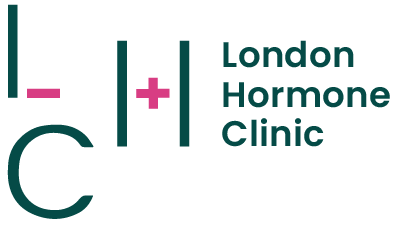Hormones and hair loss
Hair loss and thinning - just one of the many unwanted symptoms of menopause. As part of the natural ageing process, it’s as common as it is distressing, impacting confidence and self-esteem. Here we look at the causes, and the solutions of hormonal hair loss.
Let’s start with hormones
Hormones play a vital role in our bodies; of that we are certain. They regulate all our cells and in doing so, control metabolism, balance, growth, reproduction, sleep and mood. They also play a huge role in maintaining hair health throughout our lives.
Each hair on our head goes through a growing and a shedding phase. Most of the time it’s growing, but sometimes, when we run our fingers through it, or wash it, we notice strands falling out or collecting in the base of the shower. That’s shedding and it’s completely normal.
When oestrogen levels start to fluctuate (usually when a woman hits her late forties) and then fall (at menopause) this has a huge impact on hair growth and loss, with hair growing less and shedding more. At the same time, androgen hormones, like testosterone become more prominent in the body and when they do, cause hair follicles to shrink. This means that when hair does grow, it’s much finer.
And then there’s insulin resistance
Understanding the role oestrogen and testosterone play makes it easier to see why so many women notice hair loss or thinning, but there’s more. Insulin resistance, which increases at menopause, drives many chronic diseases within the body. It’s the leading cause of ageing and something many people live with, without even knowing. And, it has a huge impact on hair health. So, what is it?
When a person has underlying insulin resistance their liver makes less SHBG (sex hormone binding globulin). The role of this protein is to attach itself to testosterone-type hormones and oestrogens and carry them around the blood stream. The less SHBG, the more free testosterone and other androgen hormones, such as DHT, circulate, sensitising the hair and scalp. And this is the really infuriating part; the result of this is hair loss on the head and hair growth on the face.
What can be done?
If insulin resistance is the cause of hair loss, then that should be diagnosed and treated through lifestyle changes, alongside hormone replacement therapy. If the hair loss is being caused by a loss of oestrogen in the body, which happens in and menopause, it’s important to replace the missing oestrogen to maintain good hair thickness and texture. Oral oestrogen beats transdermal oestrogen for this because it raises that sex hormone binding globulin (SHBG) protein and in doing so, reduces skin sensitivity. Transdermal oestrogen does not do this.
Hair tonics can be prescribed and are a very effective treatment as they contain hormones and minoxidil for regrowth and cyproterone which blocks androgen receptors in the scalp – the things that cause hair follicles to shrink. Spironolactone – a diuretic medication also does this.
Hair supplements have their place too as people with hair loss are often deficient in nutrients such as B vitamins and ferritin. These can be bought from high street chemists; you don’t need to buy expensive brands. And talking of nutrition…
You are what you eat
Hair is pretty low down the pecking order when it comes to nutrients, so if you’re not eating healthily, then your scalp can suffer. Protein is crucial, as is Vitamin B and iron, so make sure you’re eating a varied, balanced diet.
Of course…
Changes to your hair aren’t all down to hormones, there are other factors at play. Female pattern hair loss, which mostly affects the crown of the head can be hereditary but is caused by insulin resistance. It can happen at any age, but most women notice this in menopause when hormone changes also impact the hair’s growing phase.
Trauma, stress, pregnancy, iron deficiencies and thyroid issues can also cause hair to thin and shed. In most cases the shedding tends to improve between two to four months after the issue that has caused it and, in most cases, a basic hair supplement, which can be bought from high street chemists will improve symptoms.
Ask for help – you’re worth it
Hair loss is distressing, as is hair growth in places that you really don’t want it, but for many women it’s yet another menopausal symptom. The good news is that it can be treated and the sooner you seek help, the better. Unfortunately, you won’t see improvements overnight as it can take between one and four months for results to show.

![hormonal hair loss ] showing hair loss in menopause](https://images.squarespace-cdn.com/content/v1/64f5ba1820a312175e8e2f0b/36f6136c-2e9c-4aff-9df2-bead4436dc92/260924+Hormone+Hair+loss.png)